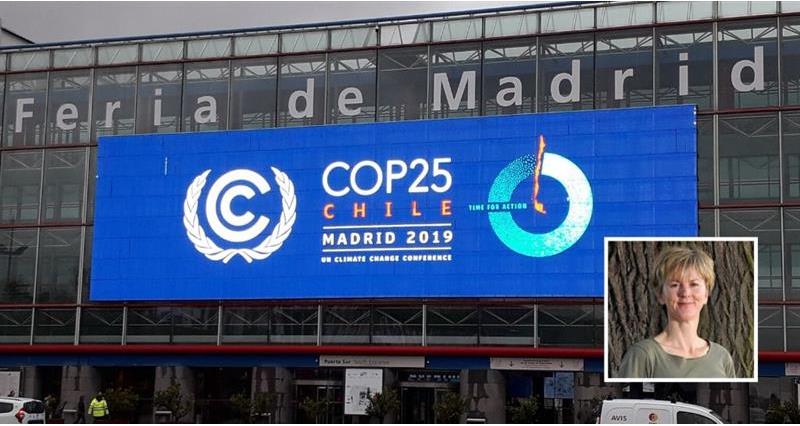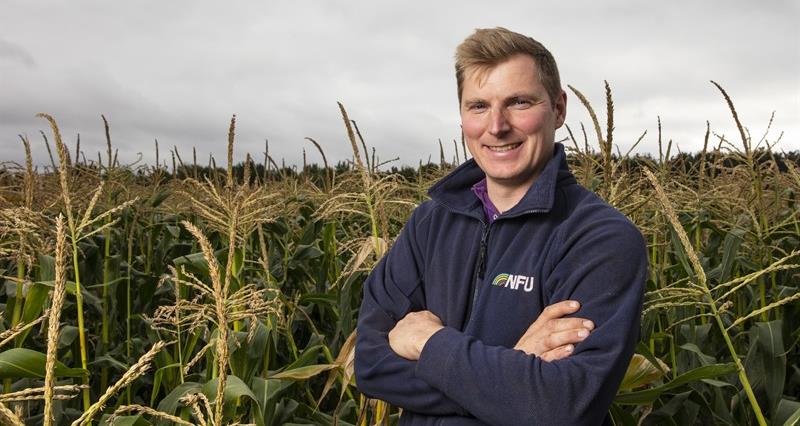With two recent reports highlighting yet again the increasingly pressing need for global action on climate change, COP25 couldn’t be happening at a more opportune time.
Last week, the United Nations Environment Programme published its latest report which warned that countries will have to increase their carbon-cutting ambitions five-fold to avoid the world warming by more than 1.5C. This came the day after the World Meteorological Organisation reported that atmospheric concentrations of CO2 and other greenhouse gas emissions had reached new highs in 2018.
Farmers and farming are at the forefront of the fight against climate change, with the sector being both one of the most vulnerable to the impact of a changing climate but also one of the best placed to help provide some of the solutions to the challenges. COP25 presented an opportunity to give the international farming community a major platform to highlight the steps it can take, and is taking, to deliver practical results.
Farming had a strong international presence at COP25 with the Farmers Constituency made up of farmers and farming representatives from across the globe, all making sure agriculture’s voice is heard in the climate change debate and all keen to make clear that agriculture is seen as part of the solution to climate change, not the problem.
Working towards net zero on farm
The NFU outlined the policy, mechanisms and support required from government and other stakeholders in order for agriculture to meet the NFU's aspiration of net zero by 2040.
Last year’s conference in Katowice, Poland, saw the first in a series of consultations and workshops addressing technical issues like adaptation and livestock productivity measures under the Koronivia Joint Work on Agriculture.
This year, the Koronivia workshop will looked at how improvements to nutrient use and manure management can help with sustainable and resilient agricultural systems, using experiences and ideas from across the world - see the Farmers Constituency submission to the pre-talks consultation, which was drafted by the NFU.
Farmers' Day
Wednesday 4 December – the day designated Farmers Day at COP25 – saw the WFO (World Farming Organisation) holding a ‘Climakers’ event which looked at the transformation of the food system.
‘Climakers’ was launched at last year’s conference by the WFO to give farmers a louder voice in the climate change agenda and help them take the lead in proposing solutions to the challenges we face that are farmer-driven, science-based and result-oriented.
Future farming leaders
As part of Farmers' Day, three members of the WFO's Gymnasium – a programme that aims to help young farmers become future farming leaders – give a global perspective on farming and climate change.
Nono Sekhoto, South Africa
Climate change is a big issue in South Africa. In the last two months we’ve had tornadoes for the first time on the east coast, we’ve had floods in the same region, and we’re currently facing drought in central South Africa. It’s been really extreme. A lot of farmers, especially smallholder farmers, are not really equipped with the information we need. I’m a cattle farmer with 2,000 hectares of land for grazing and right now it’s tough. Feed costs are really expensive because of the shortage of grass. Information around farmers being part of the solution to climate change is pretty scarce. A lot of smallholder farmers are just focusing on trying to operate and be part of the value chain. A lot of NGOs have approached farmers to see how they can help but a lot of this help is coming from NGOs not the government.
Mahess Roopun, Mauritius
Mauritius is a small island and we’re facing a lot of trouble from climate change, which is affecting all our production. As part of the solution, we’re now getting help from the Chinese. Scientists are coming over to look at how we can adopt new methods. These contributions started recently and we’re having a second session soon. One of the big issues with climate change is that young people are being discouraged now in farming. Young people don’t want to come into agriculture because of the problems. There are many young farmers who are studying agriculture at university but don’t want to farm when they leave. We‘re working with our university in Mauritius to bring in changes and new technology from outside to encourage farmers to continue in the industry and to encourage young farmers to come into the industry as well.
Christoph Daun, Germany
I think climate change is a big issue for farmers in Germany, with issues like soil protection and droughts, and I think it will become a bigger issue in the coming years. Now we have some farmer protests in Germany. The problem is that farmers have the feeling that politicians and people living in cities have no idea about the reality of everyday life on farm. It’s important to show what farming involves so that people can understand what problems we have to solve in farming and to show that farming can’t change day-to-day, it has to act in the long term. The politicians have to adopt that to their politics.

